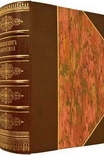Names for the Sea by Sarah Moss (moboreader TXT) 📗

- Author: Sarah Moss
Book online «Names for the Sea by Sarah Moss (moboreader TXT) 📗». Author Sarah Moss
‘There came bad weather, and in this weather twenty young sailors – there were three boats and five men in each and another boat, twenty young sailors. And on his boat, Jóhann was twenty-one, it was nearly his birthday, and there was another of twenty-two and three of nineteen. It was like that. Last year is the first year in the history of Iceland that we don’t lose anybody at sea. Jóhann was not a fisherman, not at sea. He worked on the land, and my mother had made him promise that he wouldn’t go to sea, because he was named after my uncle who drowned and we have a tradition in Iceland that you don’t name a child for someone who dies like that. But one man who was meant to be on the boat got drunk and broke his leg, and they were going to sea very early in the morning. At first my brother refused, but they somehow forced him, and he made them swear not to tell my mother. They were in Hafnarfjörður, you see, at the winter fishing. They promised they wouldn’t tell my mother he had been to sea, but then he didn’t come back. And it was a hard thing to lose him.’
Vilborg passes me a small book from the table at her side. Old leather binding, the size of my palm. Inside, pasted to black pages, are sepia photographs. Her parents, born in 1886 and 1895. The mother of the first Jóhann, born in 1860. Then there are pictures of the village, hard to understand in soft brown and a quarter the size of a postcard.
‘Did you climb these mountains?’ I ask. I’m wondering if the only way out was by sea, if the mountains felt like a wall.
She pours coffee for me. ‘No. Because I was only ten when the soldiers came. And then the fjord was locked, it was a fortress, and the girls were not allowed to wander about when the soldiers were there.’
‘Why not?’ I ask. National security or a fear of what foreign soldiers might do to Icelandic little girls?
‘Well, because they were up in the mountains as well. Going round about and spying after the Germans or whatever. I always felt very safe, though. Because my village was locked, they locked it, and you had to show a passport given by the army if you wanted to come in. It was because from my village you could see right across the firth, whereas in town the mountains block the view, you can see only a little piece of sky. They put gates at the road, and a barrier and a guard standing there day and night, and a barrier across the fjord and a ship guarding day and night, and there were mines in the water, because all the ships coming from Murmansk and going to America and back would use our fjord as a refuge, and the submarines would see them coming and try to sink them. And they put big guns up in front of the church. There was no shelter for the Icelanders when the aeroplanes came, only for the soldiers. Down on the road by the gate there was a flagpole, and of course we knew when they flew a yellow flag there were planes nearby. And when the planes came they would shoot from the big gun by the church, first three times three and then they were shooting everywhere. They would shoot and shoot so the planes couldn’t come down, and three times they shot a plane. The inhabitants of Seyðisfjörður were only a thousand people then, and the British army brought over two thousand. And then came these convoys from Russia and America, and huge ships that a plane could land on as well. So you can imagine how it was then. But I was very secure. The navy officers lived in our house and if I wanted to go anywhere, they sent men to escort me.’
‘They lived in your house?’
‘They came on a huge ship and they took every house, they took the school. It was a cold springtime, rainy, and when there is much rain there can come a landslide. There was a place in between the villages where there were no buildings because there had been a big avalanche, the year before my mother was born, 1895, and over twenty people died. And first the soldiers came and put up their tents and a big wind came and blew away the tents and all their things and they were running about. They had been sleeping when the storm began and we children thought it was funny to see them running around so. And they did repair the tents and the other things, those that hadn’t blown out to sea, and they wanted to build their barracks there, under the mountain where there were no buildings because it wasn’t safe. They were told that they weren’t allowed to build there but they said it was all right, their buildings are shaped like polytunnels and the landslide will pass over, and they put all their tents there again. And so the policeman and the magistrate and everyone went there and told them they had to move, they did not allow any man to stay because it is dangerous. And the landslide came that night and all the things, the big guns and so on, went down into the sea, and if the men had stayed they would have been killed. So then they knocked on the doors and they said, “Is there a room your family doesn’t need? We will have it.”





Comments (0)